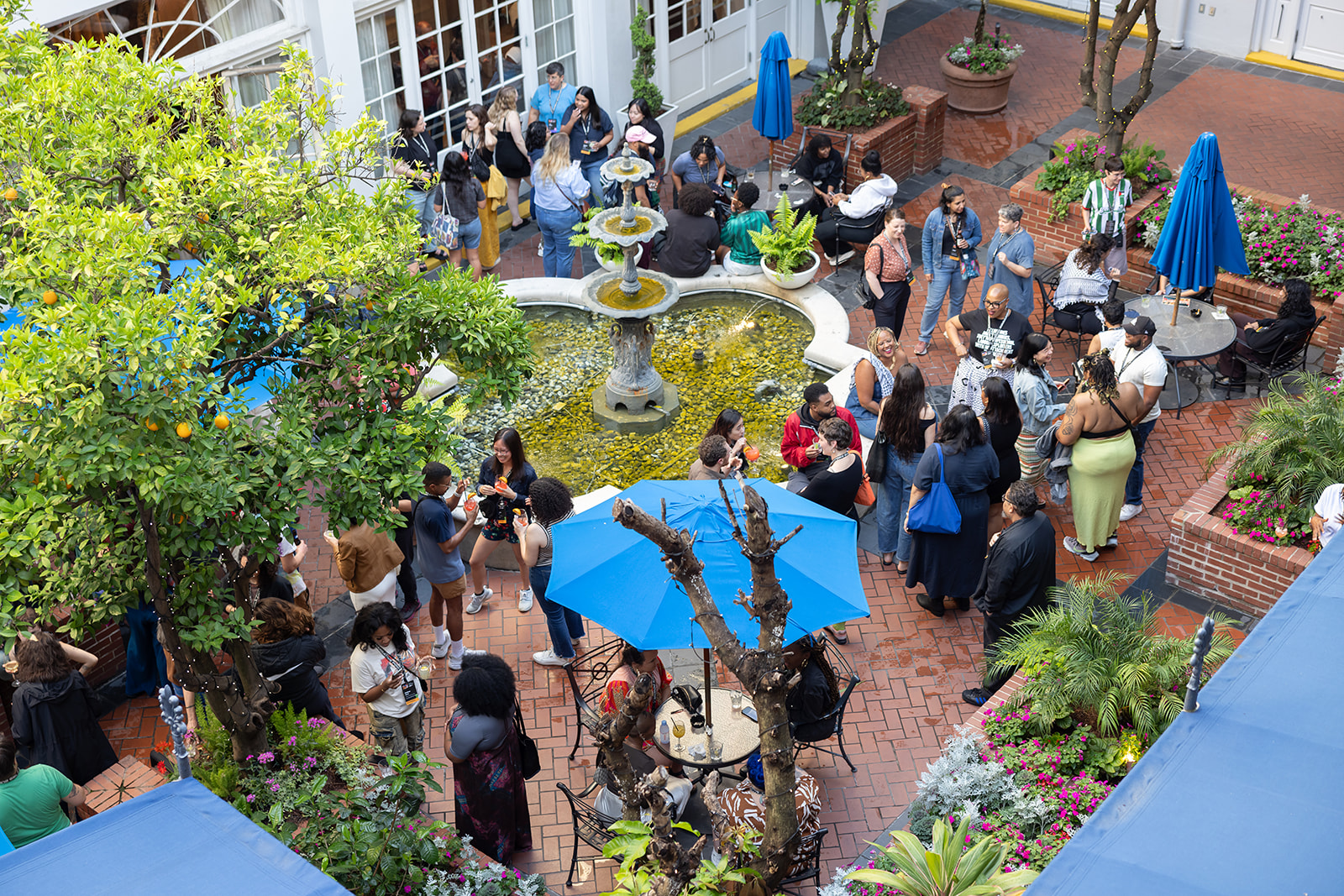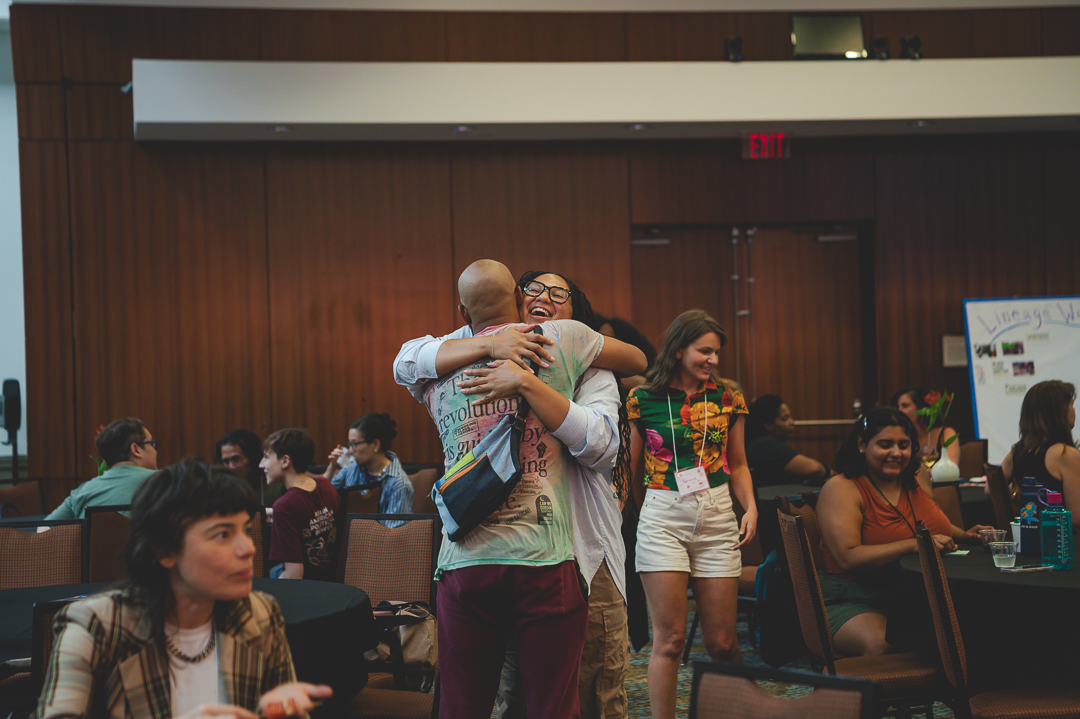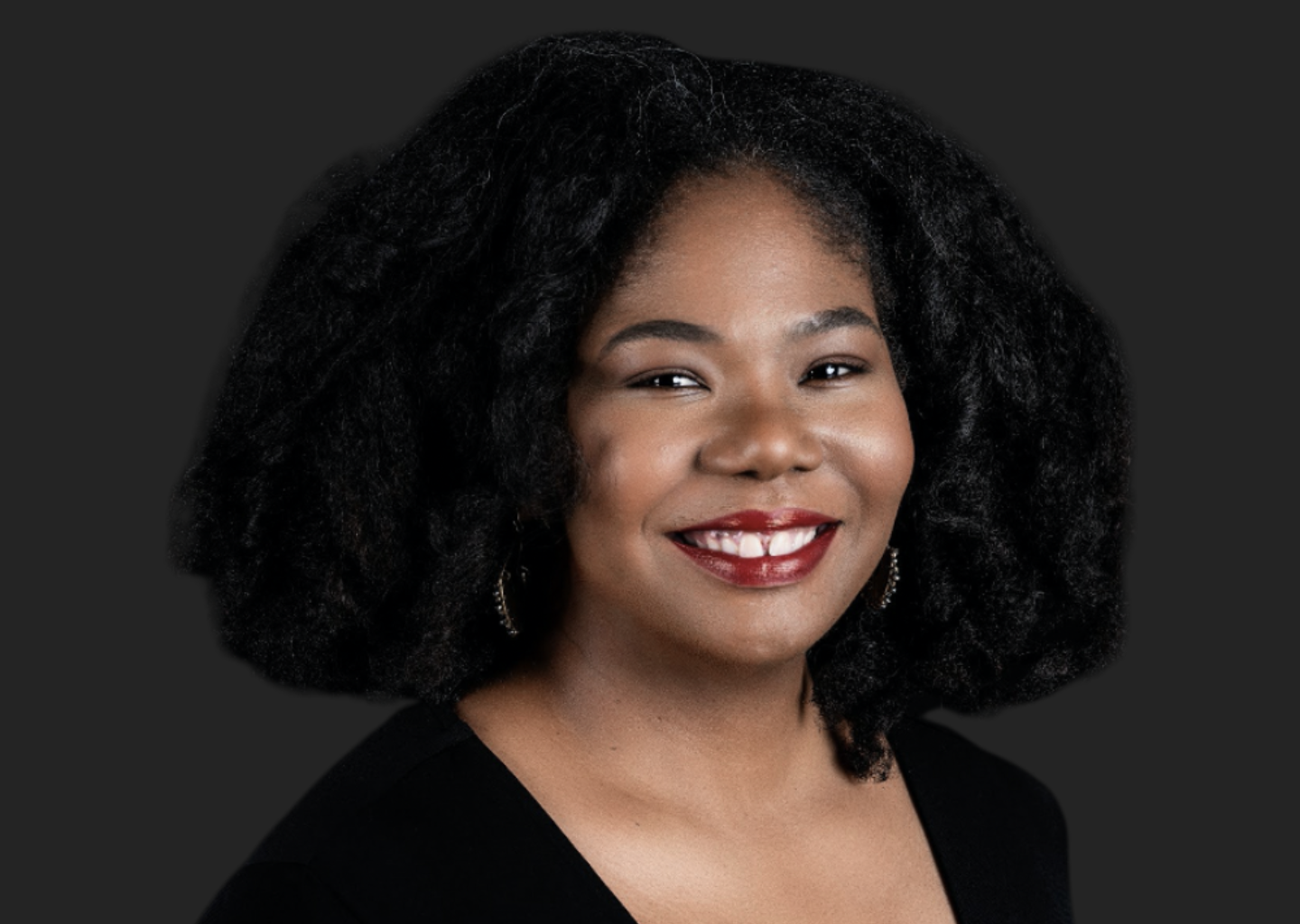On May 8, 2025, as the doors opened at Narrative Power Summit 2025 in New Orleans, writer, strategist, and ReFrame board member Malkia Devich-Cyril opened our first plenary with deep fire and clarity.
In a time of disinformation, fear, and growing repression, Malkia invited us to see narrative not only as a defense against authoritarianism — but as a pathway forward. Their remarks grounded us in the urgency of the moment and the ancestral wisdom needed to navigate it. They reminded us that grief is not weakness — it’s a unifier. It’s power.
📖 To see how this speech shaped the rest of the gathering, read the full recap blog here.
__________________________________________________________________________
Welcome radical communicators
Welcome narrative strategists
Welcome power builders and cultural workers
Welcome
It's your moment
It's your time.
I was thinking about one of our teachers of cultural strategy, the anti-colonial psychiatrist Frantz Fanon, who wrote in Wretched of the Earth:
“Each generation must out of relative obscurity discover its mission, fulfill it or betray it.”
To discover our mission, right, I think we have to begin with an accurate assessment of conditions.
I've been thinking about how we are living inside the largest global shift since World War II.
The drivers are many — from healthcare and housing to education and employment — our people's needs are just not being met.
We see identities of belonging being forged by racial and ethnic nationalist movements rather than democratic, reconstructive freedom movements.
We see the interconnected rise of gender essentialism and religious fundamentalism as vehicles for conservatism and control.
And we see the failure of bourgeois democracy increasing the appetite for autocracy and monarchy.
In this context, our movements are under attack. Faith in democracy has weakened. Base building has all but been abandoned.
In this context, narrative strategies and power seem rudderless, weak, almost ineffectual.
Authoritarianism is rising — but so are we.
A way is ending, and a way is being born.
It’s inside of this dialectic between history and future that our present narrative moment is being shaped.
Italian communist and philosopher Antonio Gramsci spoke of that dangerous time between stable governments when many things are possible — from mass loss to mass liberation, from authoritarianism to agency and action, from fascism to new forms of freedom.
This period of collapse and rebirth is characteristic of late-stage capitalism.
But while change is inevitable, the vector and velocity of change will be defined by our actions.
We will determine the direction of the future.
My friend and comrade Jen Soriano just spoke of the need for solidarity narratives — for bridges strong enough to bind, strong enough to block fascism, strong enough to build a new freedom.
James Baldwin has something to say about that in his book No Name in the Street:
“All of the Western nations have been caught in a lie — the lie of their pretended humanism… this means that their history has no moral justification… and that the West has no moral authority.”
Baldwin said America prospered. This prosperity cost millions of people their lives. Now, Baldwin says, even the people who are the most spectacular recipients of the benefits of this prosperity are unable to endure these benefits.
He said they can neither understand them nor do without them. Baldwin said:
“Above all, they cannot imagine the price paid by their victims or subjects for this way of life. And so they cannot afford to know why their victims are revolting.”
This is the formula for a nation or kingdom in decline.
No kingdom can maintain itself by force alone.
Force does not work the way its advocates think it does. It does not, for example, reveal to the victim the strength of the adversary. On the contrary — it reveals the weakness, even the panic, of the adversary.
And this revelation invests the victim with passion.
They want us to be afraid.
They want to invest in us weakness.
They think their actions will paralyze us.
Instead, their violence invests us with passion.
The neo-reactionaries, the neo-conservatives, the oligarchs — they are all consolidating under the MAGA banner to force a national decline and insurrection, a corporate kingdom.
They are using nationalism, including Black nationalism, to wedge Black communities from immigrant communities. This increases right-wing power to roll back civil rights enforcement and redefine citizenship back to pre-1850s definitions of citizen and slave.
But we know something too.
Black people in America have always been — and continue to be — a conjunctive motive force for democracy, peace and justice.
We must counter the nationalism and isolationism that has narrowed Black self-interest. We must build a new belonging for Black people in 21st-century social movements and democracies.
The narrative question is:
How do we re-inspire Black people to believe in — and engage in — organized liberation fights in this time, after neoliberalism has mainlined individualism for decades?
The organizing question is:
What infrastructure can actually absorb these hundreds of thousands of disaffected and disenfranchised people?
How can Black communities understand deportation in the context of the Fugitive Slave Act, rather than as a solution to the limits of Black citizenship?
The right is rising — but so are we.
They are wedging transgender and cisgender people.
Able-bodied and disabled people.
They’re targeting our bodies — through bathroom bans, abortion bans, sports bans, book bans.
But while they are playing their games, we know this: they have no narrative plan for climate disaster.
This is their narrative weakness — and our opportunity.
We can build belonging through our shared experience of loss.
Our narrative strategies must persuade a divestment from patriarchy and an investment in economic redistribution.
What narrative strategies connect these issues — and shift us from a moral argument about sex and gender to a moral argument about wealth and fairness?
The right is rising — but so are we.
They’re trying to wedge the Left from the Liberal. They’re criminalizing the movement for Palestinian sovereignty. Decimating our nonprofit infrastructure. Recalling our elected officials. Withholding resources from our tributaries and higher education.
But we know this moment is an interregnum. It is not full fascist capture.
There is room for our victory.
We understand that the narrative strategy gap is actually a capacity gap. And it’s one we can close.
That the cultural gap is actually an organizing gap. And it’s one we can close.
There is no narrative strategy without organizing — and vice versa.
We can recapture higher education, federal institutions, public schools, civil infrastructure.
Because while we’re being called to protect aspects of bourgeois democracy — we can meet that charge by transforming our base from audiences into agents of change.
Invested with passion.
Guided by strategy.
Grounded in solidarity.
The right is rising — but so are we.
Theirs is a death cult. We believe in living.
They invest in our mass loss.
We radicalize our people at the site of loss.
They dismiss and disenfranchise our grief.
We know collective grief is a powerful unifier — that grief itself is a narrative path to power. A strategy of mutual interest and common benefit.
Grief is a solidarity strategy.
Our mission, family — if we choose to accept it — is to rebuild the narrative strategy of solidarity out of our collective grief.
We know no faction can go it alone.
Solidarity narratives are the ones that will help us win.
Wherever there’s a wedge, we will build a bridge.
Wherever the right has built a bridge, we will build a wedge.
Our message:
There is enough.
There is room.
We can win.
__________________________________________________________________________
📺 Watch the full video on Vimeo
📖 Read the full recap blog here







































.jpeg)


.png)

%20(1).png)





























